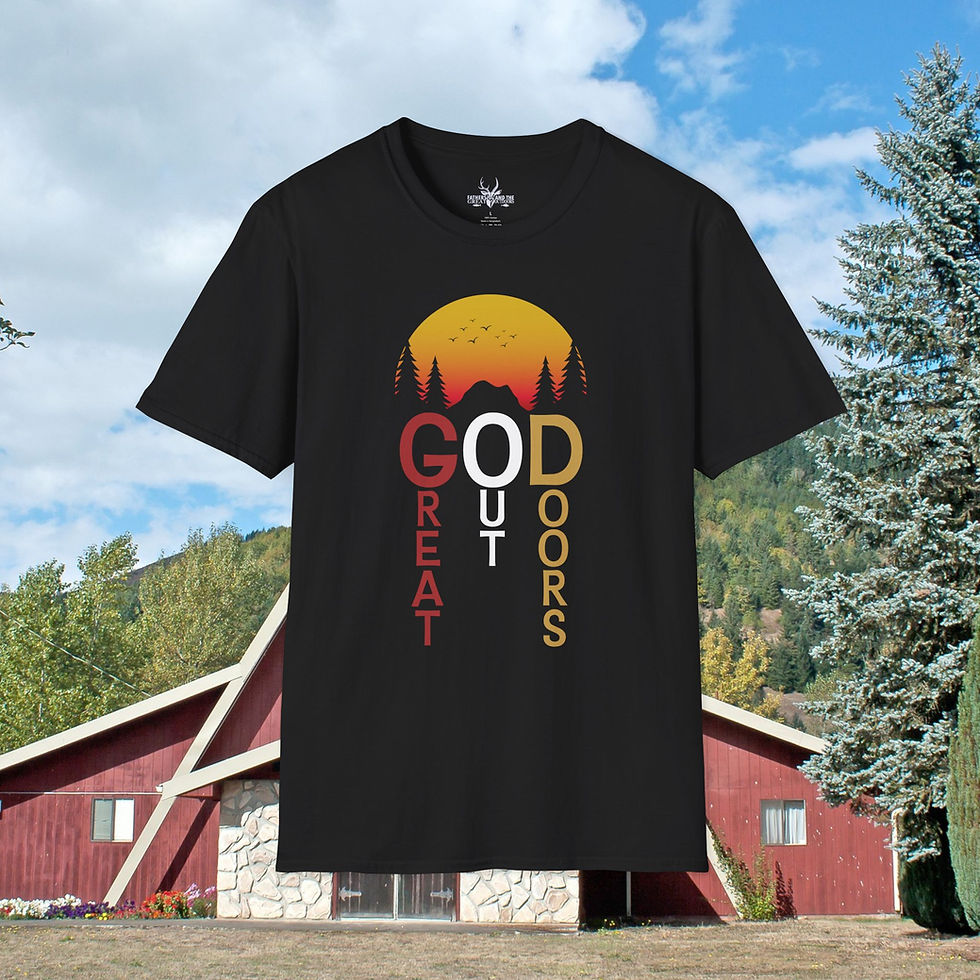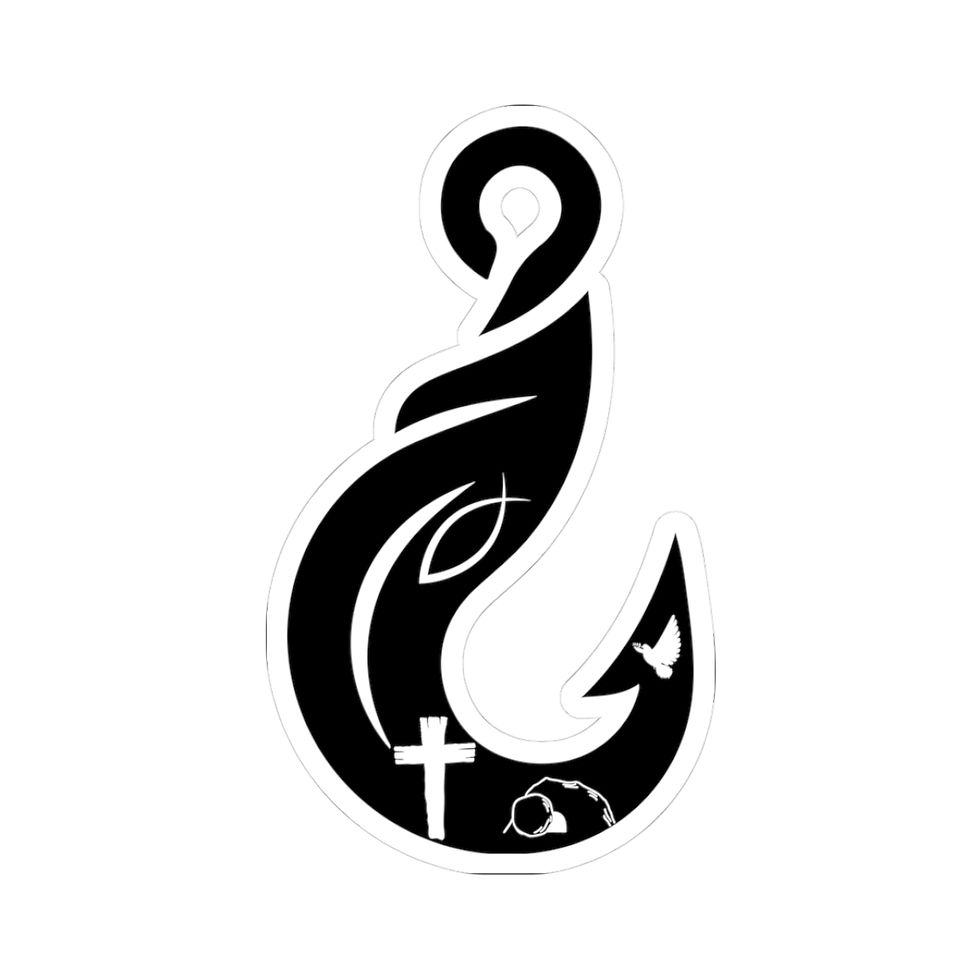Biblical History of Hunting
- Jacob Whitley

- Dec 27, 2024
- 6 min read
Hunting has a long history in our world dating back to the beginning. Even the Bible makes several and early references to hunting as God blesses man with the harvest of meat. The first mention, although subtle, was Nimrod in Genesis 10:8-12 as he is described as Noah's great-grandson, "Cush was the father of Nimrod, who became a mighty warrior on the earth. He was a mighty hunter before the Lord; that is why it is said, 'Like Nimrod, a mighty hunter before the Lord.' The first centers of his kingdom were Babylon, Uruk, Akkad and Kalneh, in Shinar. From that land he went to Assyria, where he built Nineveh, Rehoboth Ir, Calah and Resen, which is between Nineveh and Calah—which is the great city."
Nimrod was the first to be described as a great warrior and a hunter and is referenced later on as a symbolic adjective used to describe others. However, Nimrod also translates to "rebel" which could have been a coincidence or later a coined term after the belief that Nimrod's leadership led to the building of the Tower of Babel. Anecdotally, the term nimrod has made its way into modern American pop culture describing a socially awkward or inept individual thanks to the Loony Toons writers that popularized the term through Bugs Bunny teasing his continuously unsuccessful nemesis, the hunter Elmer Fudd, by sarcastically calling him "nimrod." A term meant to be mocking as its origin connotes a hunting expert.
Another brief mention that alluded to hunting was in Genesis 21:20 when it is said about Ishmael, the son of Abraham and Hagar, who was sent away to the desert. "God was with the boy as he grew up. He lived in the desert and became an archer." God and hunting would be a constant paring as the Bible progresses.
Starting in Genesis 25:27, Isaac's son Esau would be one of the most descriptive hunters mentioned in the Bible as his story is told alongside his brother Jacob's. "The boys grew up, and Esau became a skillful hunter, a man of the open country, while Jacob was content to stay at home among the tents." An example of what some fathers may find in their own children today as one wants to be out in the great outdoors and the other has little interest.
In Genesis 27:3 Isaac asks his son Esau to, "take your quiver and bow, and go hunt me some venison," in order to prepare Isaac's favorite meal before receiving his blessing before his death. This suggests that venison was a delicacy of the land of which God holds in high regard as a harvest. This story also leads into the second recording of sibling betrayal since Cane and Able as Jacob tricks his blind father into giving him the blessing instead through the encouragement of his mother.
What I personally love about this story is when years later, Jacob returns after fleeing from his brother's anger and comes home with two wives and several children. Out of fear of his brother's wrath, he sends several gifts in flocks and herds in the hopes that Esau will not kill him upon his arrival. As he nervously approached in Genesis 33:1-15, "Jacob looked up and there was Esau, coming with his four hundred men; so he divided the children among Leah, Rachel and the two female servants. He put the female servants and their children in front, Leah and her children next, and Rachel and Joseph in the rear. He himself went on ahead and bowed down to the ground seven times as he approached his brother. But Esau ran to meet Jacob and embraced him; he threw his arms around his neck and kissed him. And they wept."
"Then Esau looked up and saw the women and children. 'Who are these with you?' he asked. Jacob answered, 'They are the children God has graciously given your servant.' Then the female servants and their children approached and bowed down. Next, Leah and her children came and bowed down. Last of all came Joseph and Rachel, and they too bowed down. Esau asked, 'What’s the meaning of all these flocks and herds I met?' 'To find favor in your eyes, my lord,' he said. But Esau said, 'I already have plenty, my brother. Keep what you have for yourself.'"
Looking at this story from a modern point of view, I picture Esau riding up with his motorcycle gang and surrounding Jacob and his family. Then Esau gets off his bike and walks up to Jacob with an intimidating presence before unexpectedly removing his helmet and opening his arms for a hug with a, "Brother!" Esau clearly loves his brother and forgave his brother long ago, holding no grudges against him. He is simply just excited to see him again and meet his sisters-in-law and his nieces and nephews. Coming full circle, Esau is a prime example of who a hunter should be. A man who's priorities are God and family.
In Leviticus 17:13 God commands through Moses, “ ‘Any Israelite or any foreigner residing among you who hunts any animal or bird that may be eaten must drain out the blood and cover it with earth,'" This verse suggests how hunting would have been seen as a common practice amongst the Israelites as well as everyone else on earth. Hunting was clearly a universal practice.
In Deuteronomy 12:15 it states, "You may slaughter your animals in any of your towns and eat as much of the meat as you want, as if it were gazelle or deer, according to the blessing the Lord your God gives you. Both the ceremonially unclean and the clean may eat it." The comparison of eating as much meat as you want of gazelle or deer would signify that previously people ate their fill when the hunt is plentiful. Just like that of a plentiful harvest of crops.
In 1 Samuel 26:20, David is concerned about being killed in a place where God is not known, away from God's spiritual presence. He is aware that Saul, the anointed king of Israel, is narrow-minded in his authority to pursue David, who is innocent. "Now do not let my blood fall to the ground far from the presence of the LORD. The king of Israel has come out to look for a flea—as one hunts a partridge in the mountains.” The use of the term flea aims to suggest David's insignificance while the hunting of a partridge is mentioned to illustrate the relentless and exhaustive nature of Saul's pursuit. Partridges are known for being elusive and often found in rugged terrain. And yet, this language would have had universal meaning signifying that the practice of hunting game birds was well understood at the time.
Proverbs 1:17 creates a metaphor for a foolish plan that is easily detected and will not succeed while using the practice of trapping fowl as the visual element of this lesson, "How useless to spread a net where every bird can see it!" Later, Proverbs 6:5 continues to use hunting practices to visualize the darting nature of freeing oneself by avoiding obvious traps or schemes like that of an animal fleeing the possibility of captivity, "Free yourself, like a gazelle from the hand of the hunter, like a bird from the snare of the fowler." Then finally in Proverbs 12:27, "The lazy do not roast any game, but the diligent feed on the riches of the hunt." Aimed to focus on the idea of earning one's wealth, King Solomon grants the concept of a successful hunt as one of the most fulfilling accomplishments a man can achieve. It does not provide riches in gold, but riches in the experience of hard-earned success that provides one of the most satisfying meals one can have again and again. With his focus on life and God, this analogy can be compared to Jesus' later quote in John 4:14, "But whoever drinks the water I give them will never thirst. Indeed, the water I give them will become in them a spring of water welling up to eternal life.” Obviously not the eternal salvation that Jesus' grants us, but as a well provides us water, so can hunting provide fulfillment to our bellies and our hearts.
Several times more throughout the Bible hunting is used as a comparable analogy to a lesson being taught. Hunting is such a universally understood practice that it can be used to describe all sorts of aspects of life. It is the foundation for hard-earned rewards gained through patience, determination, and focus from skills earned from long-passed-down traditions. If you are a hunter today, you share a ritual that has been in practice since God created this beautiful world.












































Comments